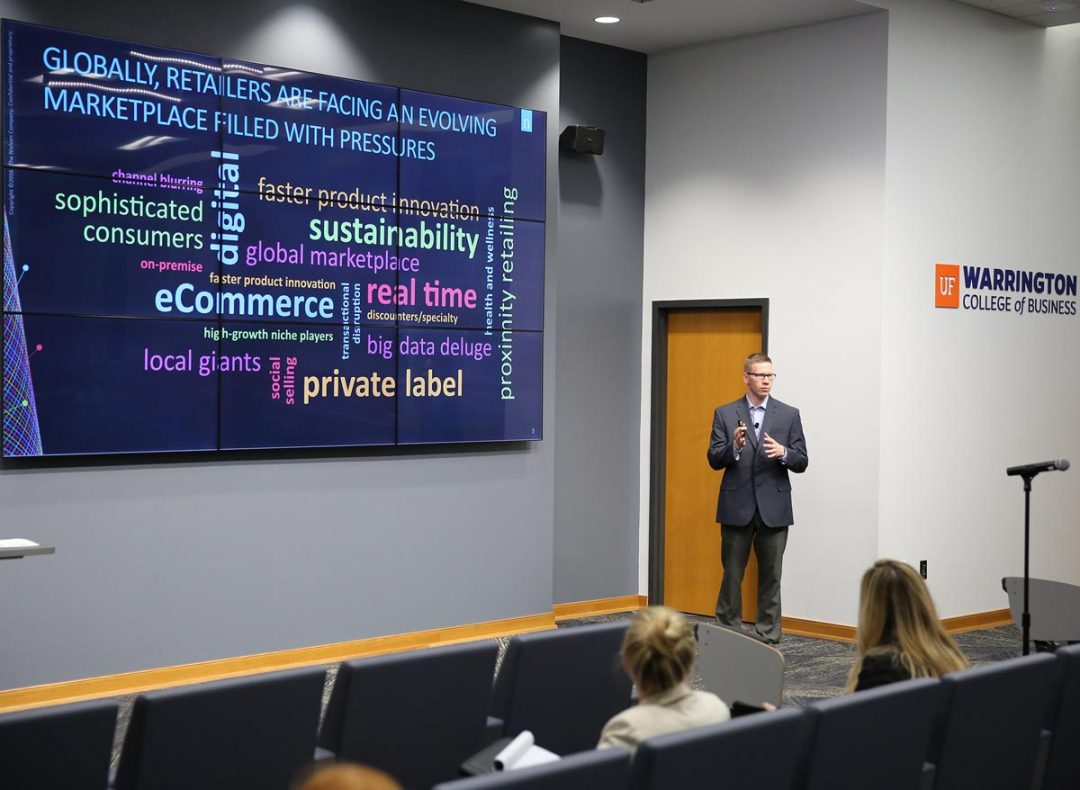How Big Data is changing retail
What comes to mind when you think about careers in the retail industry?
Store management? Merchandising? Buying and planning?
It’s a common misconception that retail is limited to these fields alone. However, many other industries are branching from retail. In fact, retail supports 1 in every 4 American jobs.
Nielsen executives Philip Melson and Natalie Williams (BS ’10) speaking at last week’s Retail Intelligence Forum, sponsored by the Miller Retail Center, brought to light another side of retail that we don’t often think about—Big Data and analytics.
Retail is changing
Melson, Nielsen’s Vice President of Walmart International, said value for money, quality, and price are the main characteristics that attract shoppers to a particular retailer in the 21st century.
Therefore, the need for brick-and-mortar stores has become questionable, since most companies have e-commerce platforms where shoppers can expect the same results. This has led many retailers to close physical stores or lessen the square footage of their store model and begin shifting towards scaled-down, urban markets.
Personalization is on the rise
Industry changes are impacting how retailers are reaching out to new, emerging markets. Advertisements are huge investments, yet 75% of American consumers cannot remember an advertisement and its brand correctly after 24 hours, Melson said. Therefore, many retailers are using targeted advertisements and hyper-personalization to find the ideal level of segmentation to connect with consumers and secure the buy, whether in stores or online.
Another popular industry trend is the convenience of “click and collect.” Click and collect incorporates buying online and picking up the products in store, which presently makes up 15-20% of commerce trips. Click and collect has revolutionized Internet shopping and the loyalty level of shoppers through this new, customized purchasing experience.
Analytics is impacting the industry
Williams, Nielsen’s Reference Data Product Leader, believes a successful retailer is 1) well-versed in analytics and 2) can transform that data into business outcomes. There are endless avenues for analytics to support retail operations, including decision support, marketing effectiveness, pricing competitiveness, and delivering a dynamic shopping experience.
Big data is quickly becoming the “new normal” for retailers. By analyzing consumers’ varying purchasing demands and behaviors, retailers are able to stay ahead of the trends and truly win in the industry.
– Annalese Kraus (BABA ’16)




